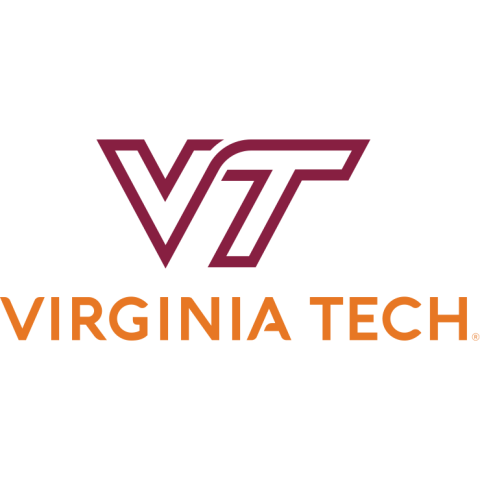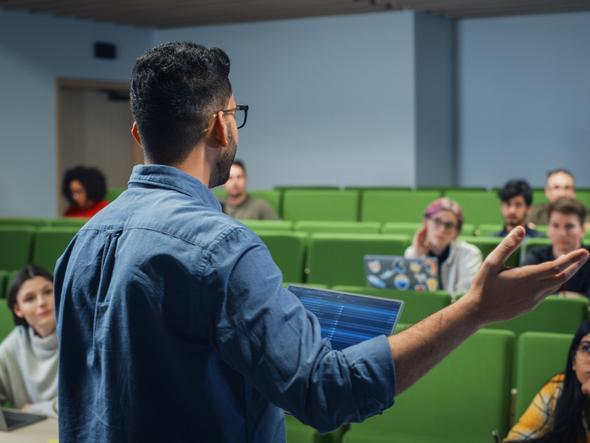
Balancing books and babies: empowering graduate-student parents
You may also like
The statistics about students who are also parents in the US often surprise people. Over 22 per cent of undergraduate students, and nearly one in three graduate students, are parents, according to national data compiled by the Urban Institute. That’s more than 5.4 million people in this country. Moreover, more than half have children under the age of 6. Juggling academics with responsibilities to children is complicated – and requires additional support and connection to resources if we’re going to truly empower these student parents to successfully reach their academic goals and jumpstart their careers.
For me, supporting parenting students is an imperative; we must do what we can, particularly since many of those affected are women. And to earnestly help women, we must resource them. While I began my career in higher education as a freshly minted PhD with no dependants, I raised my children while I was a full-time faculty member. So, I am well aware of the challenges associated with balancing a demanding workload and parental responsibilities.
Virginia Tech’s Northern Virginia-based graduate programmes are located on the outskirts of Washington, DC, rather than on the main campus in Blacksburg. Many, if not most, of our graduate students are working professionals in their twenties and thirties – exactly when “life” happens. Weddings are being planned and babies are arriving. Adding parenting duties to students’ responsibilities can complicate their academic pursuits, so programme flexibility is crucial. Parents’ primary concerns are generally about their children, and we can only be effective in our work as teaching faculty and administrators if we are mindful of parenting students’ priorities and needs.
- Read more: how to factor family into higher education
- What can universities do to support academic couples?
- From prams to postgraduate degrees: how universities can support student parents
Supporting graduate students who are also parents requires a multifaceted approach that addresses both academic and personal needs. Academic institutions and communities can provide targeted support to significantly and meaningfully ease this burden.
Non-cohort options for flexibility
The flexibility to design their own plan of study based on their work and parenting schedules and needs can help students to balance their workload. As such, many of our programmes in the Washington, DC, region are non-cohort-based. For example, in our in-person MBA programme, all core courses are offered every semester, ensuring flexibility for the students. If a student needs to reschedule a course because of a family issue, their programme isn’t derailed; they can take the class in a future semester. Timing is up to them: they can design a plan so they graduate in two years, or they can study for five years. This approach fits the audience here, where so many working professionals who are also parents want to obtain a graduate degree in order to advance their careers.
Flexible scheduling
Flexible class schedules, which might include evening or weekend courses, can help working-student parents manage their time more effectively. Online or hybrid course options can also help students to juggle their academic and parental duties. For example, Virginia Tech also offers an online MBA option, which is operated as a cohort programme where students move in lockstep – this format allows students to complete their degree in the most efficient manner; they can fit graduate school into their lives where it works best. I remember one very pregnant student at graduation who managed to just finish her degree programme before starting her family.
Family-friendly classrooms
Give teaching faculty the freedom to customise their own classroom rules. For me, this means offering the option to bring young children to class, so seeing babies in car seats or body slings and young children in the back of the classroom doing homework is not unusual in classes that I lead. For other instructors, it may mean something else entirely, such as offering the occasional online class in the middle of the semester or bending an exam schedule to avoid a child’s concert date.
Buildings should be equipped with spaces, such as lactation rooms, to support nursing mothers. Virginia Tech also provides accommodations for pregnant women as required by the Americans with Disabilities Act, which recognises pregnancy as a qualifying condition.
Parent-friendly policies
Faculty benefit from options to pause the academic clock for family responsibilities. Clear and supportive parental leave policies for graduate students are also essential. The graduate school and the university’s colleges support a work-life grant programme, which provides up to six weeks of paid leave to graduate assistants, graduate teaching assistants and graduate research assistants for childbirth, adoption and other major life events. Providing a guaranteed return to studies without penalty is crucial.
Peer support networks
Peer support groups for student-parents can offer emotional and practical assistance. These networks provide a space for sharing experiences, tips on time management and simply offering a sense of community (through scheduling play dates for the kids, for example). Connecting student parents across colleges or faculties can also be helpful to building these networks.
When Virginia Tech considers the broader rationale of why we offer these resources, there’s no question that any extra effort is worth it. When we empower parent students, we are improving not just the students’ outcomes, but the future for their entire family – and future generations of that family as well. Shouts of: “Go, Mom!” or “That’s my dad!” as students walk across the stage at commencement make me smile every year and are testament to the fact that we are doing something right in supporting our graduate-student parents.
Barbara Hoopes is associate dean of the graduate school, administering programme and student support for Virginia Tech’s presence in the greater Washington, DC, area. She is a professor of business information technology in the Pamplin College of Business.
If you would like advice and insight from academics and university staff delivered direct to your inbox each week, sign up for the Campus newsletter.




